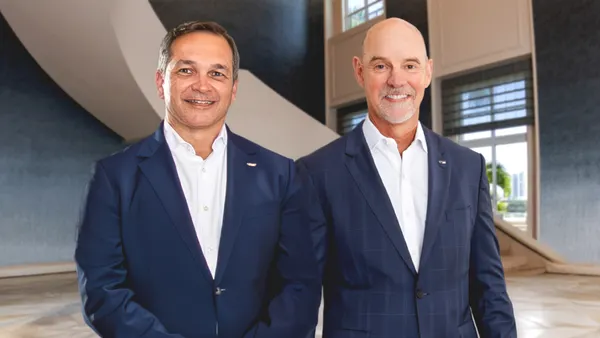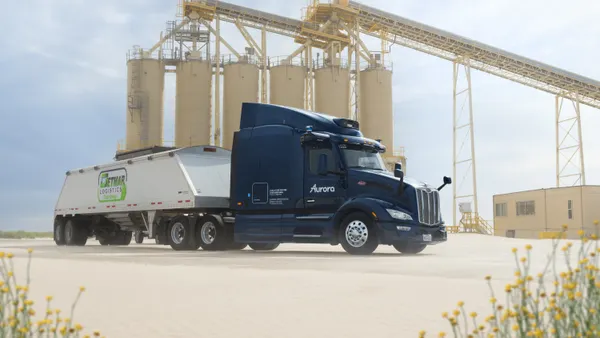Dive Brief:
- Knight-Swift Transportation expects contract rates to rise "in the low double digits, on average," CEO David Jackson said during the TPM 2021 virtual conference last week. The driver shortage is the primary reason, he said.
- Jackson said the TL side of the industry has experienced "extreme pricing volatility," in which load value could swing from maximum prices to minimum prices in a matter of weeks. During the last cycle, Jackson said, the carrier noticed trailer pools had created a floor for prices. So, contract business — particularly trailer pools — experienced less volatility.
- Knight-Swift typically spends more than $500 million in capital expenditures on trucks and trailers, and will look to grow its fleet by 6,000 trailers next year, Jackson said. However, Knight-Swift isn't planning to invest much in new tractors, because of the "difficult environment," he added.
Dive Insight:
Agility, Jackson said, is one way to remedy supply chains stressed by volatility and the squeeze of the driver shortage. "The ability to ebb and flow, as the market moves and changes, that would help this issue," Jackson said.
That's one of the reasons Knight-Swift is focusing on expanding its fleet of trailers, not tractors. For every truck Knight-Swift has, it has multiple trailers, Jackson said. That gives the firm flexibility to drop trailers, giving shippers multiple days to unload. And, if shippers allow Knight-Swift to use third-party capacity to take advantage of trailer pools, it allows even more flexibility.
Trailer pools have gained popularity with shippers and carriers. Schneider said last year that its largest customers use third-party capacity, including pools and drop-and-hook trailers. Uber Freight has also invested in pools, with its Powerloop service. It allows carriers to rent trailers instead of purchasing them, and Uber touts its offering can help carriers find backhauls more easily.
Jackson said reframing how the company looks at irregular routes might also help alleviate supply chain stress and better accommodate drivers. Volatility has shrunk the number of carriers, small and large, seeking to add capacity for irregular route, one-way TL operations, he said.
"The supply chains of America benefit from an increasing number of irregular route truckload availability. And we're in jeopardy. You've seen that go away, which could create some challenges for supply chain flexibility and agility," Jackson said.
Knight-Swift is looking at lanes and awards with "a longer-term horizon," Jackson said, though that requires collaboration with shippers. Bids typically happen on a regular basis, which is no sweat for a large company. But changes impact drivers more, as regular lanes grant them predictability, he said.
"Use whatever analogy — a driver to the supply chain is what the toy is to the Happy Meal, or whatever example you want to use," Jackson said. "You can't ignore it. It's a big piece and we all have a vested interest in how this works."








